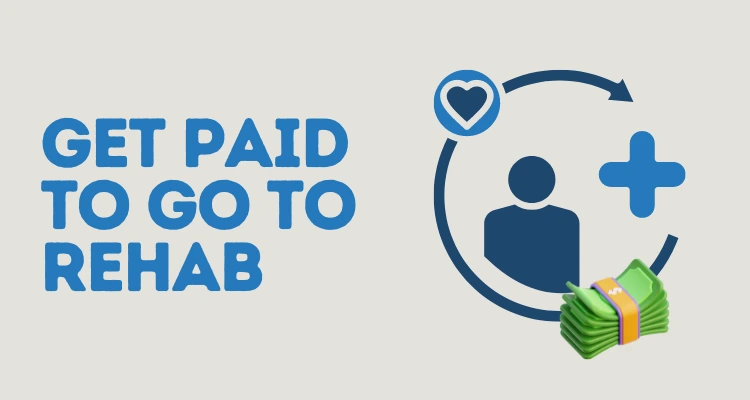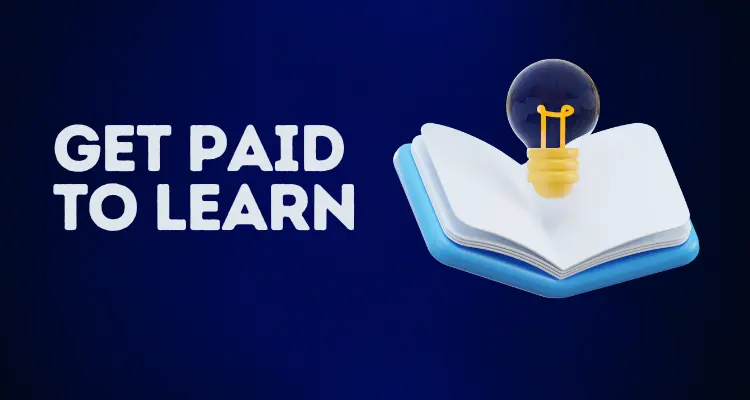“Get Paid to Sleep” is not just a catchy phrase but a real possibility that can help you earn some extra cash while you catch those precious Z’s. If you ever fantasize about getting paid to do something as relaxing as sleeping, there is good news! It may sound too good to be true, but in the realm of legitimate opportunities, there exists a way to make your dreams come true. Yes, you heard it right. In this article, we’ll explore the fascinating world of getting paid for slumber and uncover how you can turn your nightly rest into a source of income.
In recent years, the concept of getting paid to sleep has gained momentum with the rise of paid sleep studies and research. But why has this peculiar notion become so popular? Well, it all comes down to the fundamental importance of sleep in our lives.
The Power of Sleep
Sleep is not just a daily routine; it’s a vital component of our well-being. It affects our physical health, mental clarity, and emotional balance. A good night’s rest can make the difference between a productive day and a sluggish one. It can improve memory, reduce stress, and even help with weight management. As more and more people recognize the significance of quality sleep, the demand for understanding its intricacies has grown.
Organizations Value Sleep Insights
Enter paid sleep studies – a way for organizations to gain valuable insights into the sleep patterns of individuals. Whether it’s a university conducting scientific research or a company working on sleep-related products, understanding how people sleep can be a game-changer. They want to know how long we sleep, the quality of our sleep, and what happens during different sleep cycles. This knowledge can lead to the development of better sleep aids, improved productivity strategies, and even health interventions.
Now, you might be wondering how you can fit into this fascinating equation of “Get Paid to Sleep.” Well, stay with us as we delve deeper into the opportunities and options available for anyone interested in monetizing their sleep habits.
Get Paid to Sleep Websites You Should Know

Finding opportunities to “Get Paid to Sleep” may seem like a dream, but it’s more attainable than you think. First things first, let’s talk about where to find these opportunities.
1. Get Paid to Sleep with Craft Beds
Imagine being paid to indulge in your favorite pastime – watching Netflix and taking leisurely naps. Craft Beds, a distinguished UK-based manufacturer specializing in tailor-made luxury beds, is offering this incredible opportunity. They are actively seeking dedicated individuals to join their team as mattress testers.
In this role as a mattress tester, you stand to earn an impressive annual income of up to £24,000, all while working a standard 37.5-hour workweek. Your primary task? Testing the comfort and coziness of Craft Beds’ exclusive mattresses as you enjoy your beloved TV shows and take peaceful naps. Your mission is to evaluate the comfort score of these mattresses before they reach the eager customers.
To be eligible for this dream job, you must meet a few straightforward criteria. You should be at least 18 years old, based in the UK, and possess strong written communication skills. It’s as simple as that.
So, why not leverage your Netflix and nap skills to your advantage and make money while you sleep with Craft Beds? This isn’t just a dream; it’s a remarkable reality.
2. Get Paid to Sleep with SleepJunkie
Did you know that in 2022, SleepJunkie was on the hunt for a confessed insomniac to put various sleeping products to the test and share their experiences through reviews?
The selected candidates had the unique opportunity to try out eight different products for a week each and received a generous payment of $2,000 for their valuable efforts. That’s equivalent to an impressive $250 per hour.
To qualify for this exciting gig, applicants needed to explain why they were the perfect fit for the role and share if they had a history of struggling with sleep. The insights gathered were instrumental in crafting the ultimate sleep guide designed to help sleep-deprived individuals worldwide.
It’s worth noting that trying out new products might have the potential to impact sleep negatively and lead to unwanted side effects. However, the chance to choose pillows tailored to one’s preferred sleeping position could help alleviate neck and back discomfort.
This opportunity was especially significant for those who were grappling with sleep issues brought on by the challenges of the Covid-19 pandemic.
So, don’t let this opportunity slip through your fingers. You can earn easy money while you sleep! All you have to do is stay tuned for this year’s announcement by following SleepJunkie on their social media platforms. That’s where you’ll find the latest updates and details on how to get involved.
Related: Secret Websites To Make Money: Top 100
3. Get Paid to Sleep with ZipRecruiter
According to ZipRecruiter, a professional bed tester earns a tidy sum of $56,963 annually, which roughly translates to a lucrative hourly rate of $27. It’s quite an enticing thought, isn’t it?
So, the next time someone accuses you of being lazy for relishing your sleep, simply offer them a warm smile and forgive their ignorance. They probably have no clue that you’re actually amassing valuable experience to become a certified bed tester.
The world of bed testing offers a range of roles, and ZipRecruiter has a plethora of opportunities in this domain. You can explore positions like Remote Bed Tester, Contract Bed Tester, International Bed Tester, Bed Management, and Bed Tester, among others. What’s more, you don’t need any prior experience or formal qualifications to apply for these roles. Your lifelong expertise in the art of slumber is all the credential you require to step into the shoes of a professional bed tester.
So, what’s holding you back? Head over to ZipRecruiter and uncover the avenues to get paid for doing what you adore – sleeping.
4. Make Money by Live Streaming Your Sleep
You’ve heard of people streaming their video game sessions and engaging in various forms of entertainment, but have you ever thought about getting paid to live stream yourself sleeping? It may sound peculiar, but it’s a real opportunity. While not everyone will be eager to watch you toss and turn, drool, or snore, certain sleep study companies are willing to pay for the privilege of observing your slumber. All you need is a smartphone with a camera or a webcam set up to allow clear visibility and audio of your sleep. You can even stream your sleep on Apps like Tiktok and Twitch
Various sleep studies come with different durations and objectives. You might be hired to record your sleep for a few nights or even several months. Payment is flexible, much like a freelance contractor. You can set your own rates and choose to receive payment on a daily, weekly, or monthly basis. You can also opt for a one-time fee, which researchers pay either upfront or at the conclusion of the study.
It’s a unique way to earn while you snooze, and it’s all at your own terms.
5. Get Paid to Sleep for NASA
Have you ever aspired to venture into space or don the astronaut’s suit? While becoming a NASA astronaut involves years of rigorous training and education, there’s a unique opportunity to work with the National Aeronautics and Space Administration (NASA) that doesn’t require space travel but involves sleeping.
As part of their extensive research and development initiatives, NASA conducts bed rest studies. These studies entail professional sleepers spending months at a time in bed. It’s a demanding job, both mentally and physically. The goal of these studies is to explore the effects of weightlessness in space and observe how the human body responds and adapts to such conditions. Moreover, this research assists scientists in devising strategies to mitigate the detrimental impacts of microgravity.
It’s a unique way to get paid for slumber, and while it’s not quite like being an astronaut, it’s a significant contribution to space exploration.
6. Get Paid to Nap: EachNight’s Unique Sleep Experiments
EachNight, a well-known website specializing in sleep research and mattress reviews, recently embarked on an exciting endeavor. They hired a team of five nap reviewers to take part in a series of innovative sleep experiments. These experiments aimed to uncover the optimal nap durations, delve into the impact of napping on fatigue levels, and explore the intricate connections between sleep, memory, productivity, and motivation.
Participants in this engaging study had the opportunity to earn a generous $1,500 at the conclusion of the testing period, making it a lucrative opportunity for those who enjoy a good nap.
Regrettably, the application deadline for this unique opportunity ended on June 30. However, it’s wise to stay tuned and keep an eye on EachNight for any upcoming studies. You never know when another exciting sleep experiment might surface.
7. Earn Money While Staying at Hotels as a Mystery Shopper
Coyle, a reputable market research company, specializes in gathering valuable consumer feedback for its clients in the hospitality industry. But here’s the exciting part – you can actually get paid to sleep when you become a Coyle Mystery Shopping Evaluator, all while staying in hotels and sharing your reviews.
Your role involves providing comprehensive feedback about your hotel experience. This includes details about the comfort of your mattress and the friendliness of the staff.
Becoming a part of Coyle’s team is a straightforward process. Sign up and keep an eye out for opportunities in your local area. The company not only pays you for your time but also reimburses your expenses. And the good news doesn’t stop at hotels. You can also get paid to be a mystery shopper at restaurants, cruise ships, spas, healthcare institutions, and luxury retail shops.
It’s an ideal way to make money while enjoying your stay and sharing your insights.
Related: Remote Side Jobs You Should Know Today
8. Get Paid to Sleep Using House Sitters America
House Sitters America presents the perfect platform for those seeking housesitting opportunities across the United States.
Once your profile is up on the site, homeowners and pet owners have the option to hire you to look after their property or pets while they are away. You can choose between enjoying a free place to stay or negotiating a fee that suits both parties.
Once you secure a job, your responsibilities will include safeguarding the homeowner’s property, handling basic housecleaning tasks, and collecting their mail. If they have pets, you’ll also be in charge of their well-being.
Earnings and Flexibility Your compensation can come in the form of free accommodation or cash payment, depending on your agreement with the homeowner. If you opt for cash, you can expect to earn a minimum of $25 per hour.
What Makes this Option Stand Out Considering the high cost of rent in America, receiving free accommodation is an excellent way to save on housing expenses. Additionally, having your profile on House Sitters America makes you visible and easily accessible to homeowners seeking your services.
Fees and Payment To have your profile listed on House Sitters America, there is an annual fee of $30 for house-sitters.
9. Get Paid to Sleep as an Overnight Caregiver
Care.com stands out as the top platform for snagging babysitting and pet care opportunities, but that’s not all. You can also discover house-sitting gigs and chances to provide care for older people.
If you’re looking to maximize your earnings while enjoying some paid sleep, keep an eye out for overnight gigs on Care.com. For instance, when parents head off on vacation, you can get paid to look after their kids at home, even during the nighttime hours.
Many pet owners prefer to have their pets looked after in the comfort of their own homes, especially when they’re away on vacation. This means you can earn money by spending the night at these pet owners’ residences while their one-year-old pup slumbers in its crate.
Remember, time is valuable, and even if the person or pet you’re caring for is asleep, you deserve compensation for those hours.
10. Get Paid to Sleep by Setting Up a Google Alert
I once pondered, why waste precious time searching for ‘bed tester’ jobs daily when you can easily set up a Google alert to notify you whenever a new bed tester vacancy appears or when a relevant social media post is shared? Fortunately, this is a straightforward process, and once it’s established, you can let it work its magic without constant supervision.
Here’s how you can do it:
- Go to Google Alerts.
- In the search box at the top, type in the topic you wish to follow, such as “mattress testing jobs.” You’ll discover a variety of job listings with this keyword, including the ones I’ve previously mentioned.
- Click on the “Create Alert” button.
You can also click the edit icon to fine-tune the alert settings. Specify how often you want to receive the alert in your email, choose the region from which you’d like to receive job opportunities and make sure to set the “How many” section to ‘Only the best results.’ Finally, click “Update Alert,” and you’re all set.
You can watch the video below to see how to set it up below
Sleep Job Responsibilities

Before you dive into the world of “Get Paid to Sleep,” it’s crucial to understand what you’re signing up for. Sleep study jobs come with specific tasks and requirements. These typically include:
- Sleeping: Well, that’s the primary task, isn’t it? You’ll be asked to sleep in a controlled environment while experts monitor your sleep patterns.
- Following Instructions: It’s essential to adhere to the study’s guidelines, which may involve sleep schedules, dietary restrictions, or refraining from certain activities.
- Data Reporting: You might be asked to keep a sleep diary or provide feedback on your sleep experience.
- Medical Checks: Some studies might require medical assessments to ensure your health is suitable for the research.
The Process
Participating in a sleep study usually involves several steps:
- Application: Start by finding a suitable study and submitting an application, often online.
- Screening: If your application is accepted, you’ll go through a screening process to ensure you meet the study’s criteria.
- Informed Consent: You’ll be asked to sign an informed consent form, outlining the study’s purpose, procedures, and potential risks.
- Study Period: During the study, you’ll stay in a sleep clinic or research facility. Researchers will monitor your sleep using equipment like EEGs, and your progress will be closely observed.
- Compensation: Once the study is complete, you’ll receive your compensation.
Benefits and Drawbacks
Participating in sleep studies has its perks, but it’s not all smooth sailing:
Benefits:
- Extra Income: You “Get Paid to Sleep.” It’s a fantastic way to earn money while contributing to science.
- Knowledge: You gain insights into your own sleep patterns and habits.
- Contribution to Research: You become a part of meaningful research that can benefit others.
Drawbacks:
- Disruption: Your sleep environment may be different from what you’re used to, which can affect the quality of your rest.
- Commitment: Some studies require a significant time commitment, which may not suit everyone’s schedule.
- Monitoring: Being observed while you sleep can feel intrusive for some people.
In the end, participating in a sleep study is an opportunity for those who are willing to “Get Paid to Sleep” while contributing to the understanding of one of life’s most essential activities. Weigh the benefits against the potential drawbacks to determine if it’s the right choice for you.
Skills and Qualifications
So, you’re all set to pursue the exciting path of “Getting Paid to Sleep.” But, what skills and qualifications do you need to make your dream job a reality? Let’s take a look:
Slumber Savvy: First and foremost, you should have a strong relationship with your bed. Understanding the nuances of your sleep patterns, knowing what helps you drift off, and staying committed to a sleep schedule are all valuable skills.
Health Check: Some studies might require you to be in good health, so staying fit and addressing any health concerns is essential.
Good Communication: Being able to communicate your experiences and any observations about your sleep patterns effectively is a vital skill. Researchers will appreciate your insights.
Patience: Sleep studies can sometimes be a lengthy process. Patience is crucial, whether you’re waiting to be selected for a study or during the study itself.
Certifications and Degrees
In most cases, you don’t need any formal degrees or certifications to “Get Paid to Sleep.” These opportunities are open to people from various backgrounds. However, having a degree in a related field, such as psychology or sleep science, can give you an edge and make you a more attractive candidate.
Tailoring Your Resume
When applying for sleep study jobs, it’s essential to tailor your resume to make it clear that you’re an ideal candidate for “Get Paid to Sleep.” Here’s how to do it:
Highlight Your Sleep Expertise: Emphasize your understanding of sleep patterns and the benefits of good sleep hygiene. This can be in a dedicated section or woven throughout your resume.
Mention Any Relevant Courses or Degrees: If you have a degree in psychology or a related field, mention it prominently. It shows your commitment to understanding sleep.
Include Any Previous Sleep Study Experience: If you’ve participated in sleep studies before, it’s a significant advantage. Highlight your role and the results you contributed to.
Discuss Any Health or Medical Expertise: If you have a background in health or medicine, it’s worth mentioning, as it demonstrates your understanding of the health-related aspects of sleep.
Exemplify Communication Skills: Showcase your ability to communicate effectively. This is a vital skill for sharing your experiences and insights during sleep studies.
In the end, your passion for sleep and your ability to communicate your expertise effectively will be your best allies in securing that opportunity to “Get Paid to Sleep.” Tailoring your resume to reflect these skills and qualifications will set you on the right path. Sweet dreams and successful job hunting!
Practical Advice for Success
So, you’ve landed a gig to “Get Paid to Sleep.” Now, how do you ensure you excel in your new role? Here are some practical tips to guide you on your journey to sleep success:
Mastering Time Management
Managing your time effectively is key when you’re participating in sleep studies. You need to stick to specific sleep schedules and follow study guidelines. Here’s how to do it:
- Set Alarms: Use alarms to remind yourself when it’s time to go to bed and when to wake up. Consistency is crucial.
- Plan Your Day: Structure your daytime activities to ensure they don’t interfere with your sleep schedule. This includes meal times and exercise.
- Stay Organized: Keep a sleep diary or use a sleep tracking app to monitor your sleep patterns. This data can be valuable for the study and help you make adjustments for better sleep.
Consistency Is Key
Consistency in your sleep patterns is vital for the success of a sleep study. Researchers want to observe your sleep habits under specific conditions, so here’s how to maintain it:
- Stick to the Schedule: Even on weekends, try to maintain the same sleep schedule to ensure consistency.
- Avoid Late-Night Screen Time: The blue light from screens can interfere with your sleep. Turn off your devices well before bedtime.
- Create a Relaxing Bedtime Routine: Wind down with calming activities like reading or taking a warm bath. A consistent routine signals to your body that it’s time to sleep.
Strategies for Quality Sleep
In a “Get Paid to Sleep” job, the quality of your sleep is paramount. To optimize your sleep quality, consider these strategies:
- Comfort Matters: Ensure your sleep environment is comfortable. Invest in a good mattress and keep your bedroom dark and quiet.
- Mindful Eating: Avoid heavy meals close to bedtime, and limit caffeine and alcohol intake. These can disrupt your sleep.
- Stay Active: Regular physical activity can promote better sleep, but avoid vigorous exercise right before bedtime.
- Reduce Stress: Practice stress-reduction techniques like meditation or deep breathing to calm your mind before sleep.
- Limit Naps: While napping can be rejuvenating, try to limit them to 20-30 minutes during the day to avoid interfering with nighttime sleep.
By mastering time management, maintaining consistency, and optimizing your sleep quality, you’ll be on the path to success in your “Get Paid to Sleep” job. Remember, your contribution to sleep research is not just about the money; it’s about helping others sleep better too. Sweet dreams and prosperous slumbers!
The Importance of Ethical Considerations
Participating in a sleep study where you “Get Paid to Sleep” is a fantastic opportunity, but it’s essential to remember that ethical considerations are at the heart of this process. Ethical guidelines exist to protect the rights, safety, and well-being of participants. Here’s why it matters:
Respect for Participants: Ethical standards ensure that participants are treated with respect and dignity. Your safety, comfort, and rights are a priority.
Data Accuracy: High ethical standards ensure that data collected during sleep studies is accurate and reliable, leading to valuable insights.
Research Credibility: Ethical conduct enhances the credibility of sleep studies and the research community as a whole.
Related: 42 Side Hustles That Pay Weekly
Regulations and Standards
Various regulations and standards are in place to safeguard participants in sleep studies. These include:
Informed Consent: Before participating in a study, you must provide informed consent. This document outlines the study’s purpose, procedures, potential risks, and your rights as a participant.
IRB Approval: Many sleep studies undergo review by Institutional Review Boards (IRBs) or ethics committees to ensure that they meet ethical and safety standards.
Participant Rights: Participants have the right to withdraw from a study at any time without facing consequences.
Privacy and Confidentiality: Your personal information and data are protected and kept confidential, adhering to privacy regulations.
Addressing Concerns and Misconceptions
It’s natural to have concerns and misconceptions when considering a “Get Paid to Sleep” opportunity. Let’s address some common worries:
Physical Safety: In properly conducted sleep studies, your physical safety is a priority. Research facilities take measures to ensure you are not at risk.
Invasion of Privacy: Your privacy is protected, and the data collected is typically anonymized, meaning it can’t be linked back to you.
Health Risks: Researchers adhere to strict health guidelines. If a study has specific health requirements, they’ll be clearly communicated in the informed consent document.
Study Duration: Some studies may be lengthy, but you always have the right to withdraw if it becomes too burdensome.
Financial Compensation: Receiving payment is not a sign of unethical conduct. You are providing a valuable service, and compensation is a way to acknowledge your time and effort.
In conclusion, ethical considerations are at the core of sleep studies where you “Get Paid to Sleep.” Regulations and standards are in place to protect your rights and safety. By addressing concerns and misconceptions, we hope to offer clarity and assurance to those interested in participating in such studies. It’s a rewarding way to contribute to science while enjoying a peaceful slumber. Sweet dreams and ethical choices!
Concluding Thought: Get Paid to Sleep
In this article, we’ve delved into the fascinating world of getting paid to sleep, a concept that might sound too good to be true. However, we’ve established that it is, in fact, a legitimate opportunity. Here’s a quick recap of the key points discussed:
- The rise of paid sleep studies and the importance of understanding sleep’s impact on our lives.
- How to find these unique opportunities and the types of organizations that offer them.
- What to expect in a sleep study job, including the tasks and requirements.
- The skills and qualifications that can help you excel in such roles.
- Practical advice for success in sleep studies, focusing on time management, consistency, and sleep quality.
- The significance of ethical considerations in sleep studies, along with regulations and standards in place to protect participants.
“Get Paid to Sleep” is not a mere dream, but a real way to earn while contributing to valuable research on sleep. If you’re intrigued by the prospect of combining slumber with income, we encourage you to explore these opportunities further. Your journey towards a unique and rewarding experience awaits.
So, what are you waiting for? It’s time to dream big and sleep well while you explore the world of “Get Paid to Sleep.” Your bed might just become your favorite source of income. Sweet dreams and happy exploring!
(FAQs) related to the concept of getting paid to sleep:
Q1: Is it really possible to get paid for sleeping?
A1: Yes, it’s a legitimate opportunity. Sleep studies and research organizations often pay individuals to participate in their studies, where they monitor your sleep patterns and collect valuable data.
Q2: How do I find opportunities to get paid for sleeping?
A2: You can start by looking for sleep studies at universities, sleep clinics, and research facilities. Many of these opportunities can be found online through websites and forums dedicated to sleep studies.
Q3: What are the requirements for participating in a sleep study job?
A3: Requirements can vary, but generally, you should have good sleep habits, be in decent health, and be willing to follow the study’s guidelines. Some studies may have specific criteria related to age, gender, or health conditions.
Q4: Do I need any special qualifications or degrees to participate in sleep studies?
A4: No, you don’t typically need formal qualifications. However, having a degree in a related field like psychology or sleep science can make you a more attractive candidate.
Q5: How do I ensure the safety of sleep study participation?
A5: Sleep studies are conducted following strict ethical guidelines and safety standards. Participants are required to provide informed consent, and studies are often reviewed by ethics committees to ensure your safety and well-being.
Q6: What benefits can I expect from participating in sleep studies?
A6: You can earn extra income while contributing to valuable scientific research. You’ll also gain insights into your own sleep patterns and habits.
Q7: Are there any drawbacks to participating in sleep studies?
A7: Some drawbacks can include potential disruptions to your sleep environment, a time commitment, and the feeling of being monitored while you sleep. However, these drawbacks vary depending on the specific study.
Q8: How can I optimize my sleep quality during a sleep study?
A8: You can optimize your sleep quality by maintaining a consistent sleep schedule, creating a comfortable sleep environment, and adopting good sleep hygiene practices.
Q9: Is it ethical to get paid for sleeping in a research setting?
A9: Yes, it is ethical as long as the study follows established ethical guidelines and standards. Participants provide informed consent, and their rights and safety are protected.
Q10: Where can I find more information about opportunities to get paid for sleeping?
A10: You can explore websites, forums, and research facilities that specialize in sleep studies. These resources can provide information on available opportunities and how to get involved.






